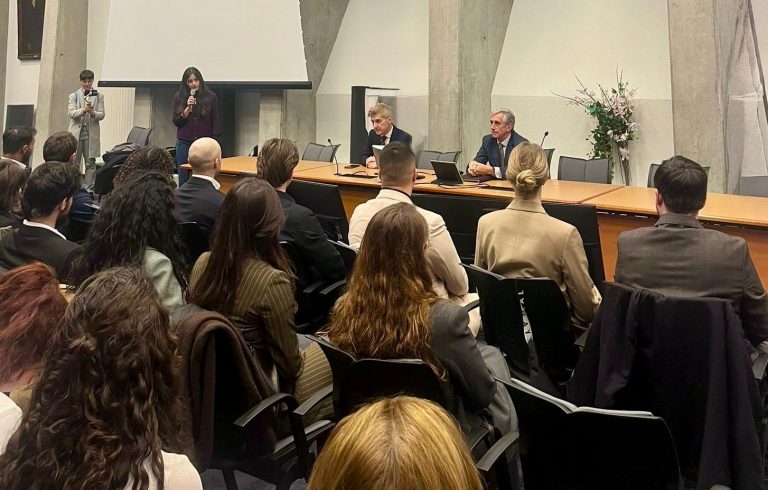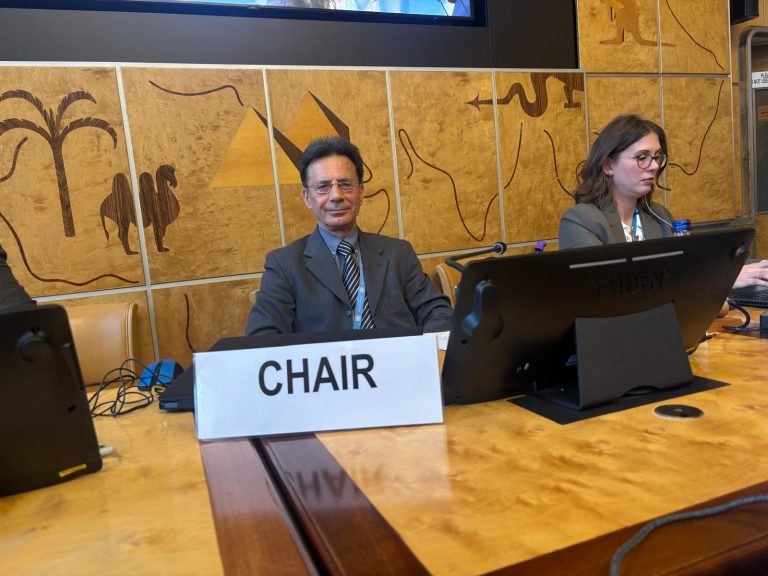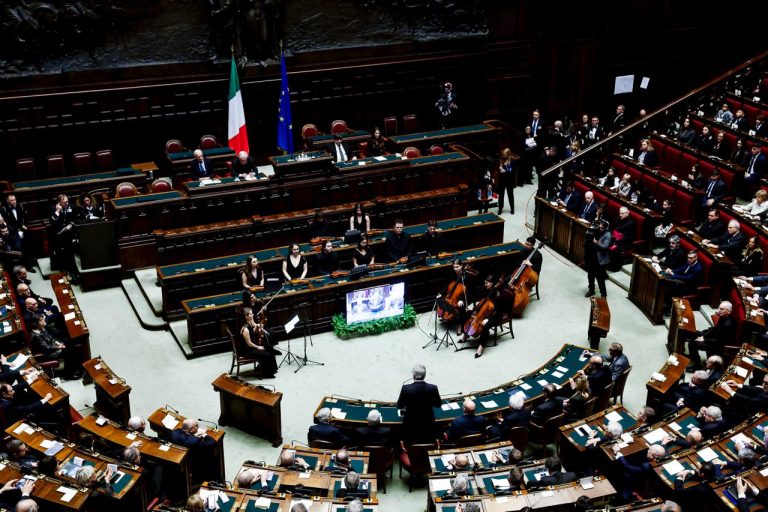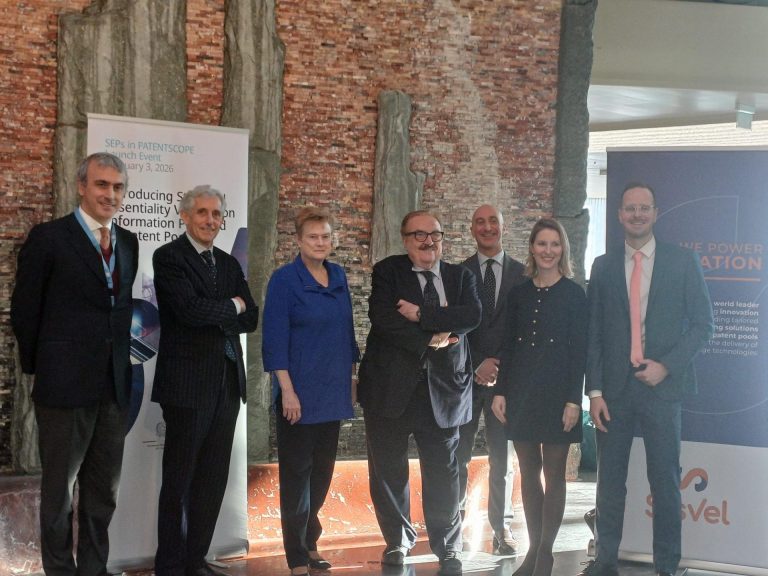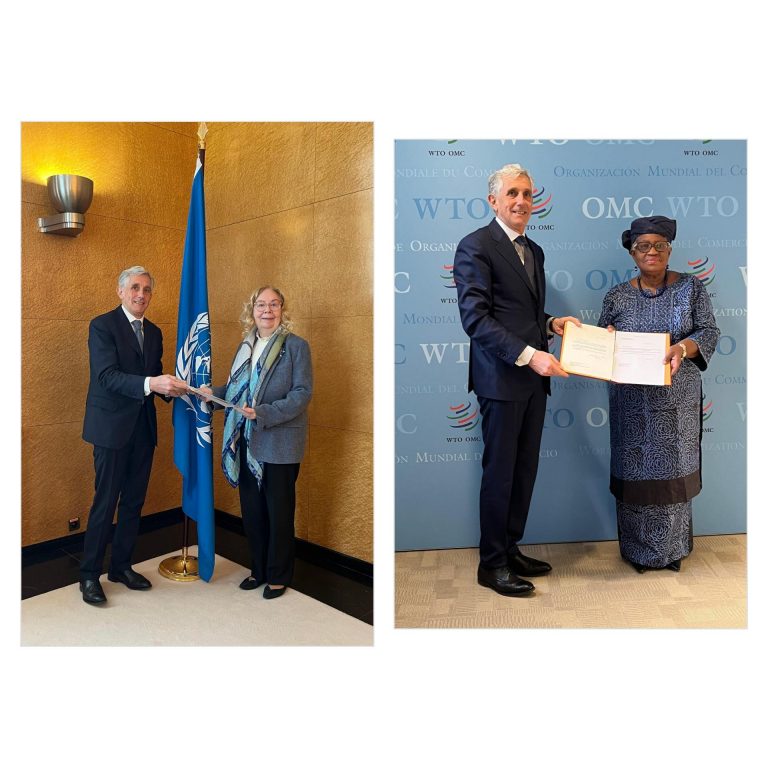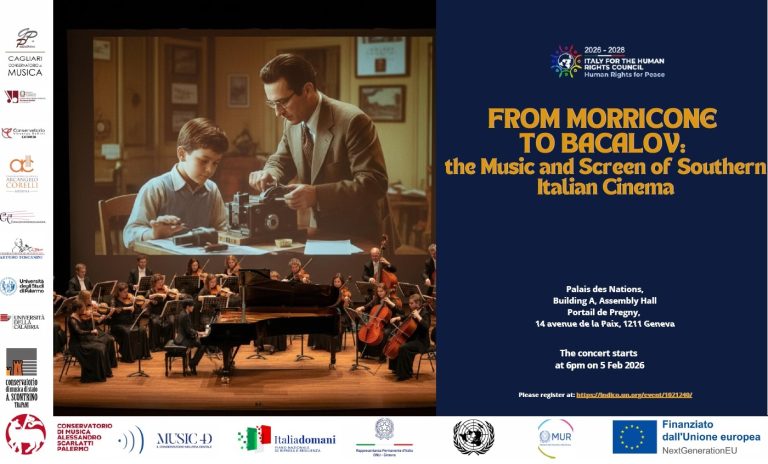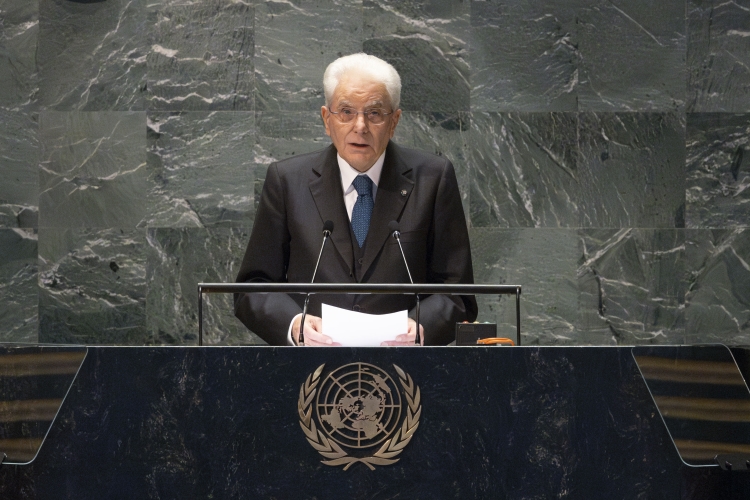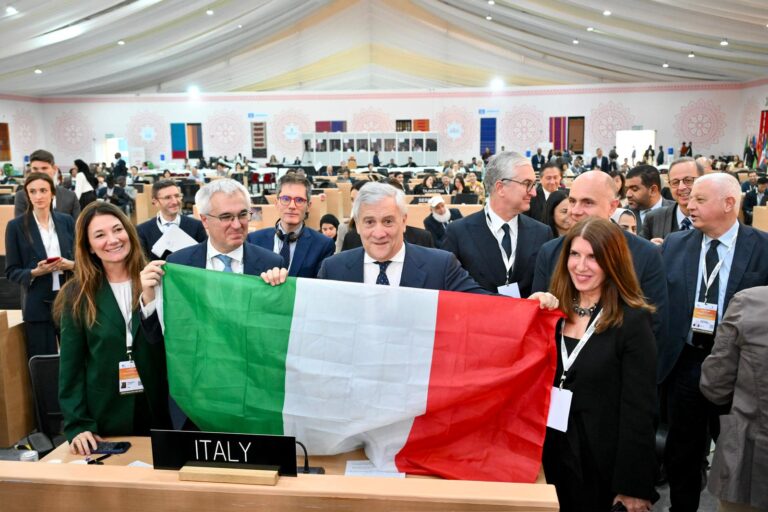Annual bilateral consultations between Italy and the United Nations High Commissioner for Refugees (UNHCR) took place today at UNHCR Headquarters in Geneva. The Italian Delegation was led by the Director General for Migration Policies of the Ministry of Foreign Affairs and International Cooperation, Luigi Maria Vignali, with the participation of the Director of the Italian Agency for Development Cooperation, Marco Rusconi, the Prefect Maria Forte, Deputy Head of the Department for Civil Liberties and Immigration of the Ministry of Interior, and Dr. Marina Maggiore, Director of the General Directorate of Migration Policies of the Ministry of Labour and Social Policies.
UNHCR was represented by the High Commissioner for Refugees, Filippo Grandi, alongside the Director of the External Relations Division, Dominique Hyde, the UNHCR Representative for Italy, the Holy See and San Marino, Chiara Cardoletti, and the Directors of Africa and the MENA region.
During the meeting, both Italy and UNHCR reiterated the solid strategic significance of their bilateral partnership, founded on the common commitment to meet refugee protection needs and to find durable solutions. The parties also shared the need to address the challenges arising from the financial and administrative difficulties that the Agency is experiencing. Italy stressed the importance of the humanitarian and migration issues, in line with the objectives of the Mattei Plan and the multilateral initiatives promoted at the UN and the EU, also in light of the upcoming implementation of the New Pact on Migration and Asylum.
The consultations placed strong emphasis on the situation in Africa, particularly regarding mixed movements and challenges posed by the main migratory routes. The parties discussed the synergies among the Mattei Plan, the Rome Process and the route‑based approach, along with potential sustainable responses that may integrate humanitarian interventions, development cooperation and peace building. UNHCR and Italy also recognised the central role played by civil society organisations, the private sector, as well as the Italian Cooperation initiatives in African and Mediterranean countries in the development and consolidation of durable solutions.
The session on the Middle East and North Africa provided an in‑depth analysis on the Syrian crisis and the prospects of voluntary, safe and dignified returns of refugees. It was also expressed the need to maintain a protective role in complex contexts such as Libya and Tunisia. Finally, another session was dedicated to Italian domestic priorities, particularly on inclusion programs and labour mobility mechanisms, which highlighted the importance of an integrated approach among institutions, local communities, and international partners.
In the final session, UNHCR and Italy confirmed their willingness to further strengthen bilateral and multilateral cooperation, identifying concrete areas for collaboration in line with Italian priorities. They restated their commitment to work together to face the challenges posed by the current crises and forced displacement scenarios.






